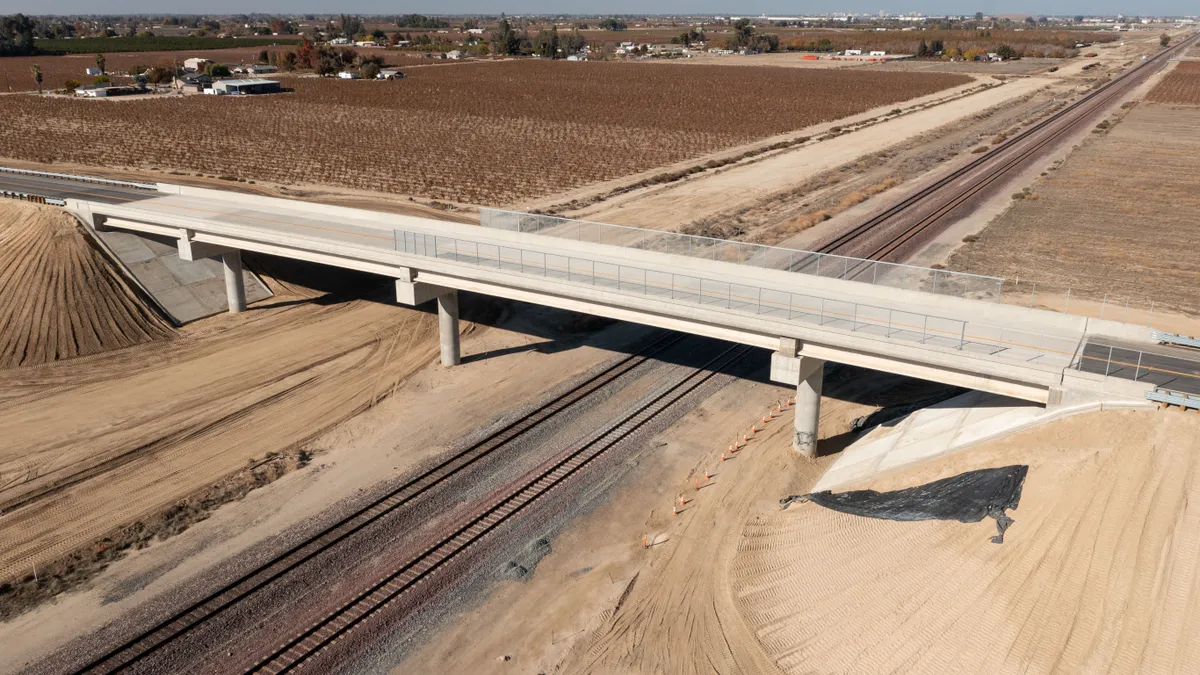Editor’s note: This story has been updated to include a comment from an AFL-CIO representative.
To encourage the development of high-speed rail systems, the Federal Railroad Administration wants to establish a “streamlined process” for federal reviews of grant funding applications, according to a notice posted Wednesday in the Federal Register.
The Federal-State Partnership for Intercity Passenger Rail Grant Program is making $4.6 billion available for projects outside the Northeast Corridor, including but not limited to high-speed rail. Applications are due April 21. The FRA is inviting project developers to submit their domestic sourcing and workforce plans now, instead of during the grant application and funding process.
The FRA defines high-speed rail as “electrically powered passenger railroad projects intended for operations over 160 mph.” Current qualifying projects include California’s Los Angeles-to-San Francisco project, a portion of which is under construction, along with the proposed Brightline West route between Las Vegas and Southern California and the proposed Texas Central project to connect Houston and Dallas.
The California High-Speed Rail Authority said it had received the FRA notice and is reviewing it. “We applaud the FRA’s effort to understand what its grant applicants are planning in the areas of Buy America and workforce issues, and we look forward to providing them with all of the information they are requesting,” said Melissa Figueroa, chief of strategic communications at the California High-Speed Rail Authority, in an email.
To receive federal assistance, projects must comply with various Buy America requirements in the Infrastructure Investment and Jobs Act. According to the notice, the FRA will require grant applicants to develop a domestic sourcing plan for their projects that shows “how recipients will maximize the use of available domestic content, or, if such content does not currently exist, how they will work with suppliers to build production capacity.” Plans should also justify any use of imported goods, products and materials.
An AFL-CIO representative agreed on the value of early notice of waiver requests. Greg Regan, president of the union's Transportation Trades Department, said in an email that such waivers "must be used only when absolutely necessary" and noted that "with respect to high-speed rail, there is utility in identifying any waivers up front in the application process rather than after a project sponsor has already received federal funding."
The FRA said it “recognizes that the domestic manufacturing ecosystem for high-speed rail will require investment.” High-speed rail developers therefore may need to ask for waivers from Buy America requirements, and it wants those requests sooner rather than later.
The FRA also warned on its website that it would strictly apply the Buy America provision. It will consider any waiver to be temporary because it expects that “achieving domestic manufacture and 100% domestic component content can and will occur in the very near future.”
Grant applicants must also explain how they will create jobs. The U.S. Department of Transportation said in the notice that it intends to use the high-speed rail program to help create “good-paying jobs with the free and fair choice to join a union” and with “strong labor standards and training and placement programs.”












